Ongoing economic challenges mean basic material goods and Florida-style theme parks are thin on the ground, but don’t let that put you off. The country’s close-knit family culture and languid traffic-free streets, where kids still play makeshift baseball unhindered, nurtures one of the most relaxed, family-friendly environments imaginable. Bring your children and you’ll be welcomed wherever you go.
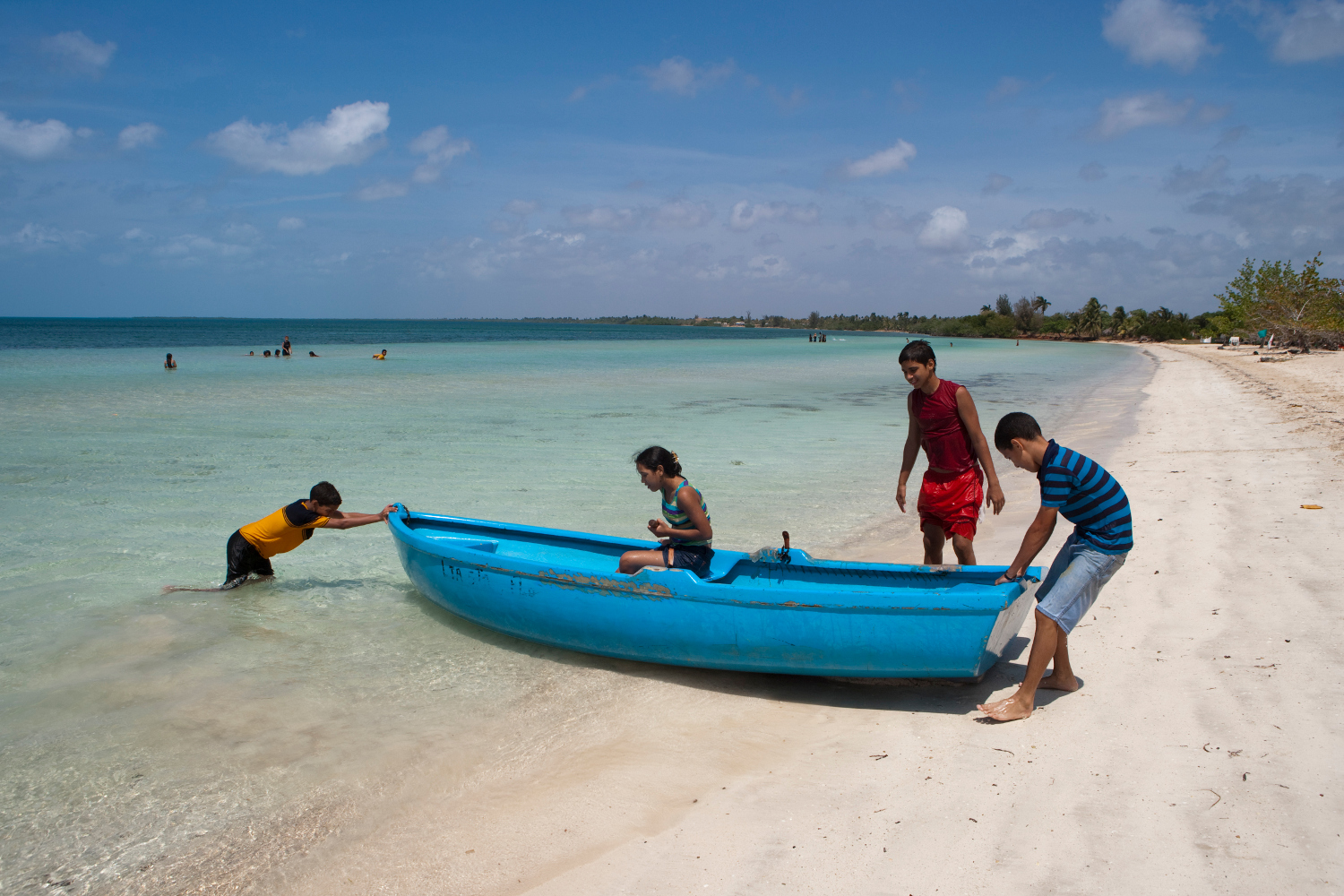
What Cuba lacks in mega-aquariums, it makes up for with a rich booty of history and culture. The key for holiday-planning parents is to ignore standard entertainment schedules and think outside the box. Cheap, ‘only-in-Cuba’ experiences lurk in the unlikeliest places if you know where to look.

Every provincial city has a baseball stadium selling tickets for small change, an ice cream parlor full of families socialistically sharing tables, and a local Casa de la Cultura where arty kids’ activities encourage imagination and spontaneity. Joining in, whoever you are, is heartily welcomed.
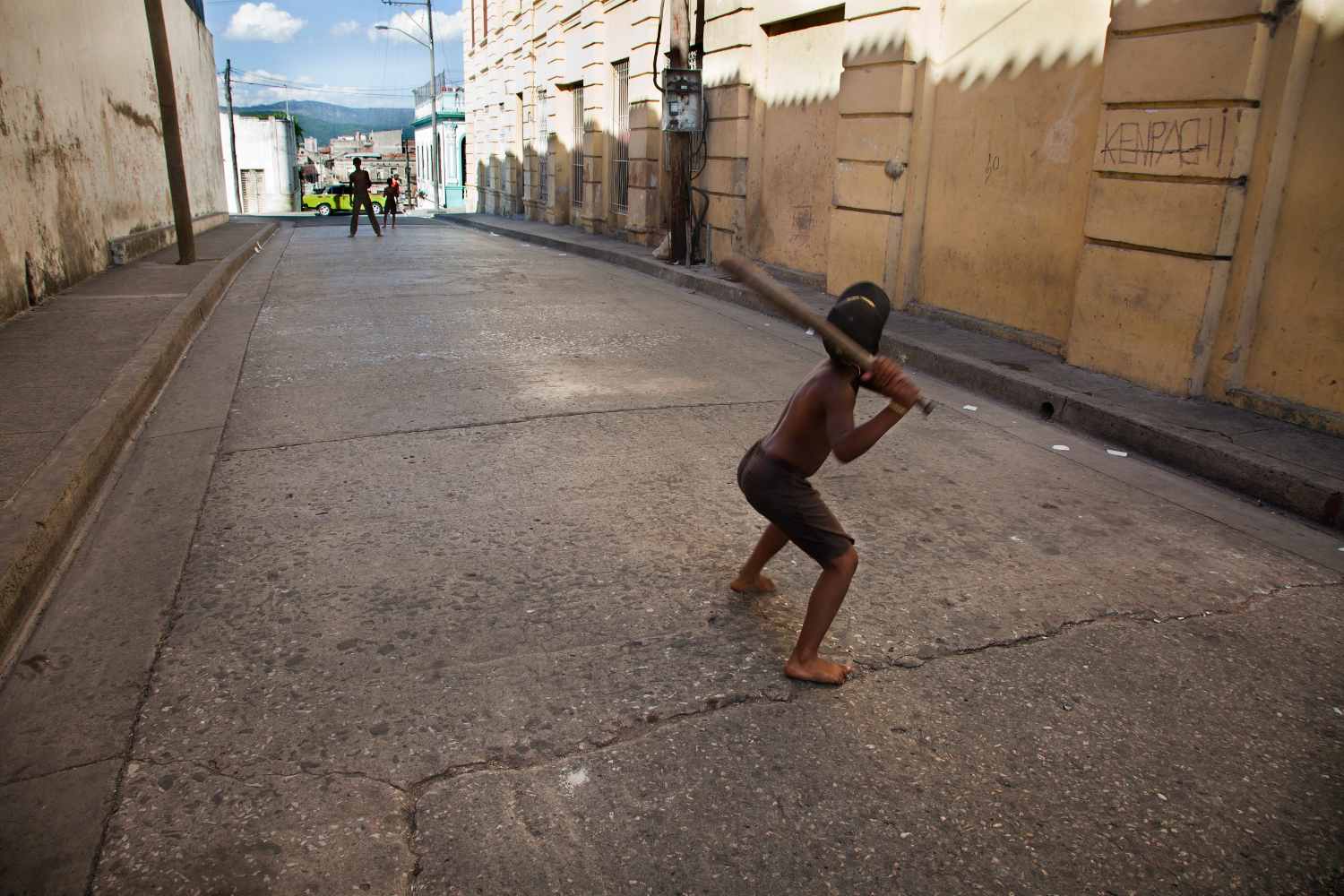
Havana has four pirate-era forts including the 18th century Fortaleza de San Carlos de la Cabaña, revered for its nightly cannon-firing ceremony where actors dress up in 18th-century military regalia. On the other side of the harbor lies Havana Vieja, the old colonial quarter where young imaginations can run amok in narrow cobbled streets plied daily by wandering troubadours and theatrical performers on stilts. Equally alluring are the neighborhood’s small museums dedicated to such esoteric topics as old cars, playing cards, Leonardo di Vinci and – best of all – chocolate.
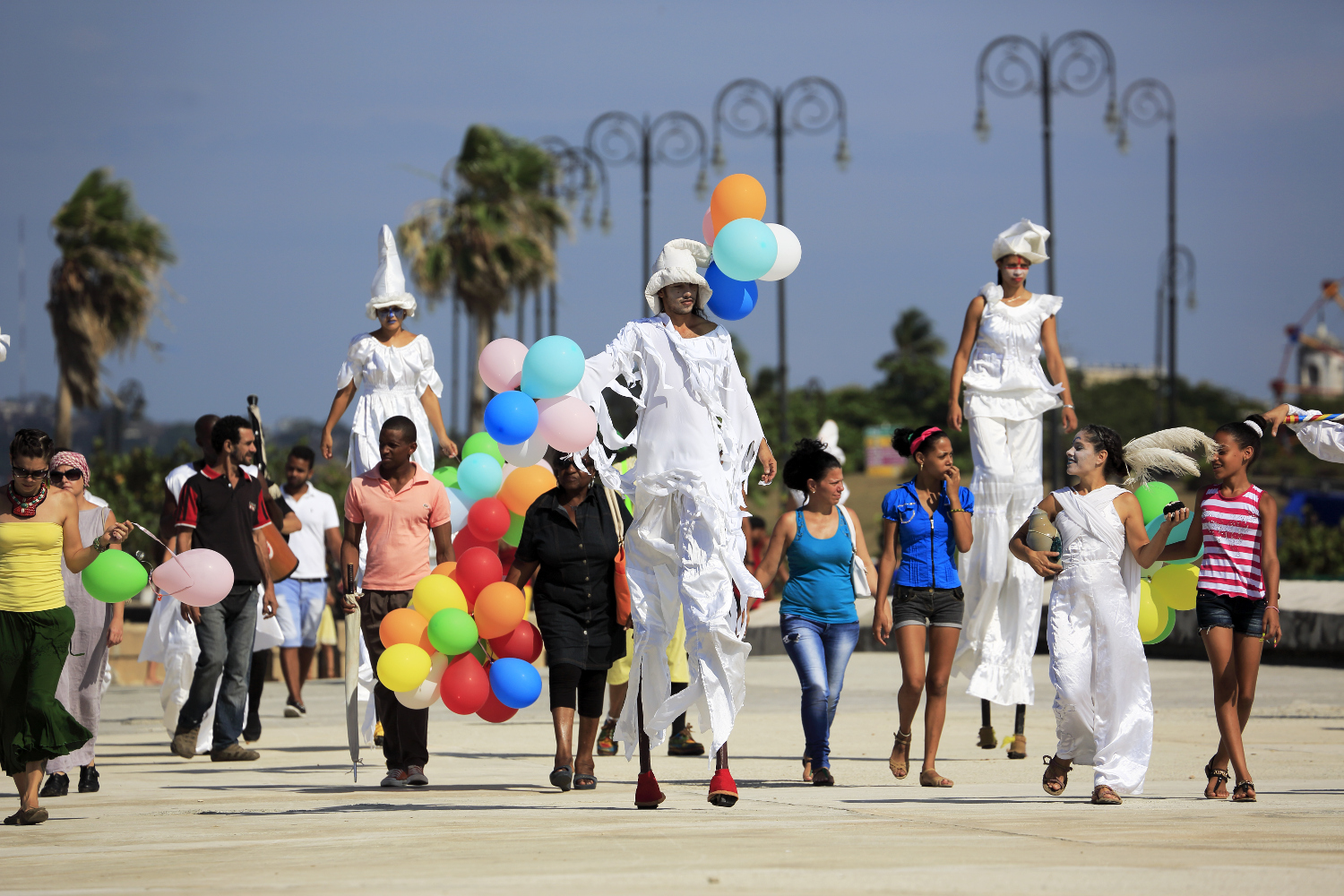
Beyond Havana, Cuba is known for its beaches. Playa Ancón near the beautiful Unesco city of Trinidad has good snorkeling just offshore and runs catamaran excursions to a couple of Robinson Crusoe-like islands nearby that will help spur on your kids’ desert-island fantasies. It’s also close to easy hiking trails in the Escambray Mountains, some of which lead to waterfalls and natural swimming pools. Another good nexus for families is bucolic Viñales where you can partake in guided hikes, visit rustic farms and explore the largest cave in Cuba.
For a day away from the gritty back-roads, your kids may enjoy an afternoon by the pool of an all-inclusive. Many resorts in Varadero and Cayo Coco offer day passes (approximately CUC$35-70; rules and prices vary according to the hotel) allowing pool and beach access along with license to raid the lunch and dinner buffet. It’s not very Cuban, but it’ll probably keep your kids happy.
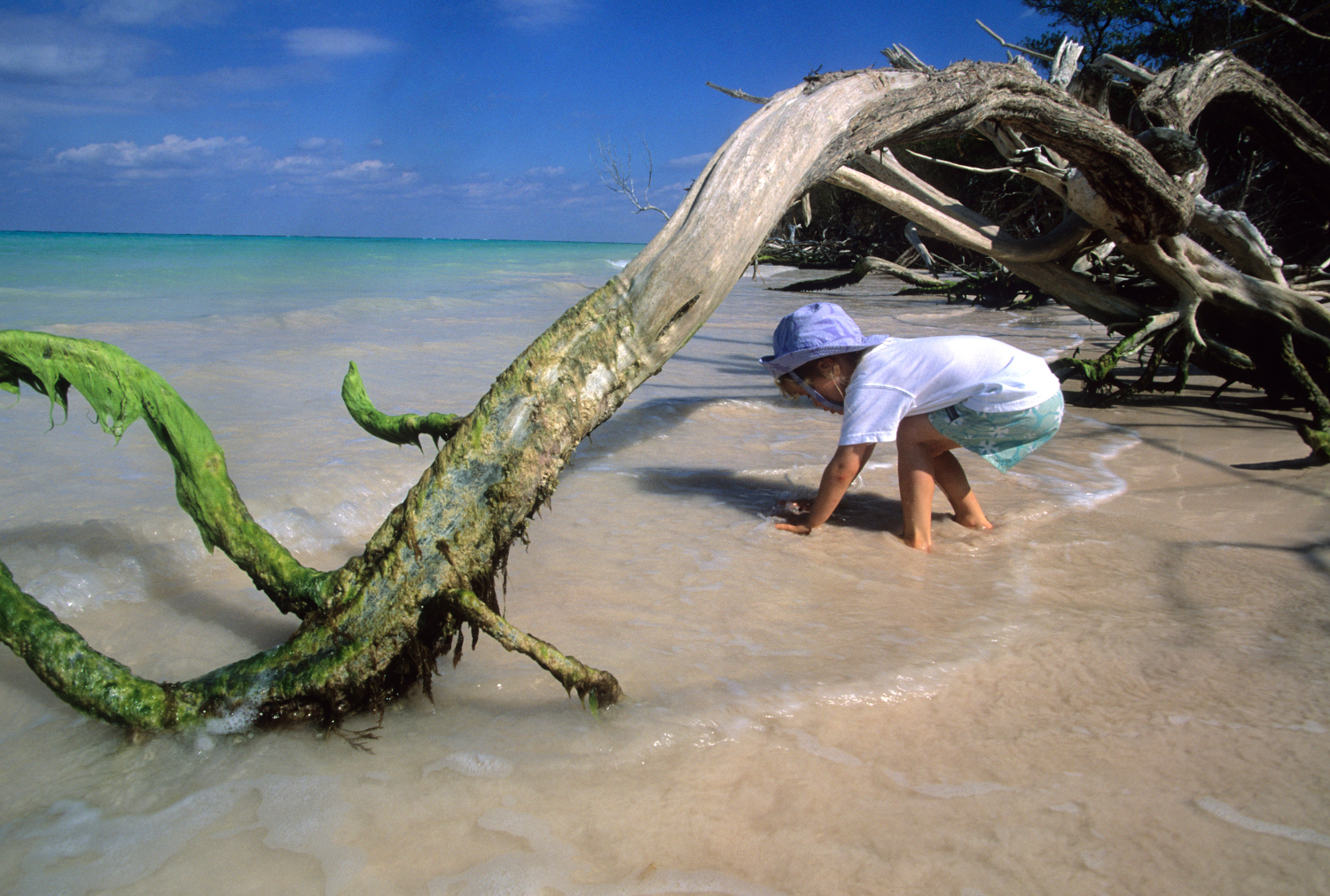
One of Cuba’s star experiences in their own right, casas particulares make perfect bases for traveling families. Essentially private homestays with Cuban families, these guesthouses are regularly inspected by government officials and conform to good generic standards. Stay at one and your family will get a candid glimpse of Cuban family life, struggles, triumphs and all.
Most casas particulares are well-equipped with different bed configurations that help cater for families. Casas famously cook up some of the best food in Cuba – and the multi-tasking owners, who often have kids of their own, will try their hardest to cater for your child’s unsophisticated taste-buds. Even better, many casas have a sun-dappled front porch equipped with at least one rocking chair – the ultimate way to put your baby/toddler to sleep as you watch the animated pastiche of Cuban life slip by.
Cuba’s default food – rice and beans – is sufficiently plain enough to appeal to all but the fussiest palates and it’s nutritious, too. Similarly, meat and fish dishes are rarely heavily spiced. Vegetables can be a little limp and boring, though more variety is available if you target the newer private restaurants in Cuba’s bigger cities. Delicious tropical fruit is abundant. Stay in a casa particular and you’ll be offered delicious fruit plates of guava, mango, banana and pineapple for breakfast. For drinks, small boxes of tropical fruit juice in multiple flavors are ubiquitous. Kids should only ever drink bottled water.
Families have three options for transportation in Cuba: bus, car or taxi. Viazul buses are safe and efficient and children under 12 travel half-price (under 5s go free if they share an adult seat). Hire cars are modern, but relatively expensive. Car-seats aren’t mandatory in Cuba and are rarely provided meaning you’ll have to bring your own. Private taxis usually charge around CUC$0.50 (US$0.50) per km over longer distances. All things considered, they can often be less hassle than a hire car.
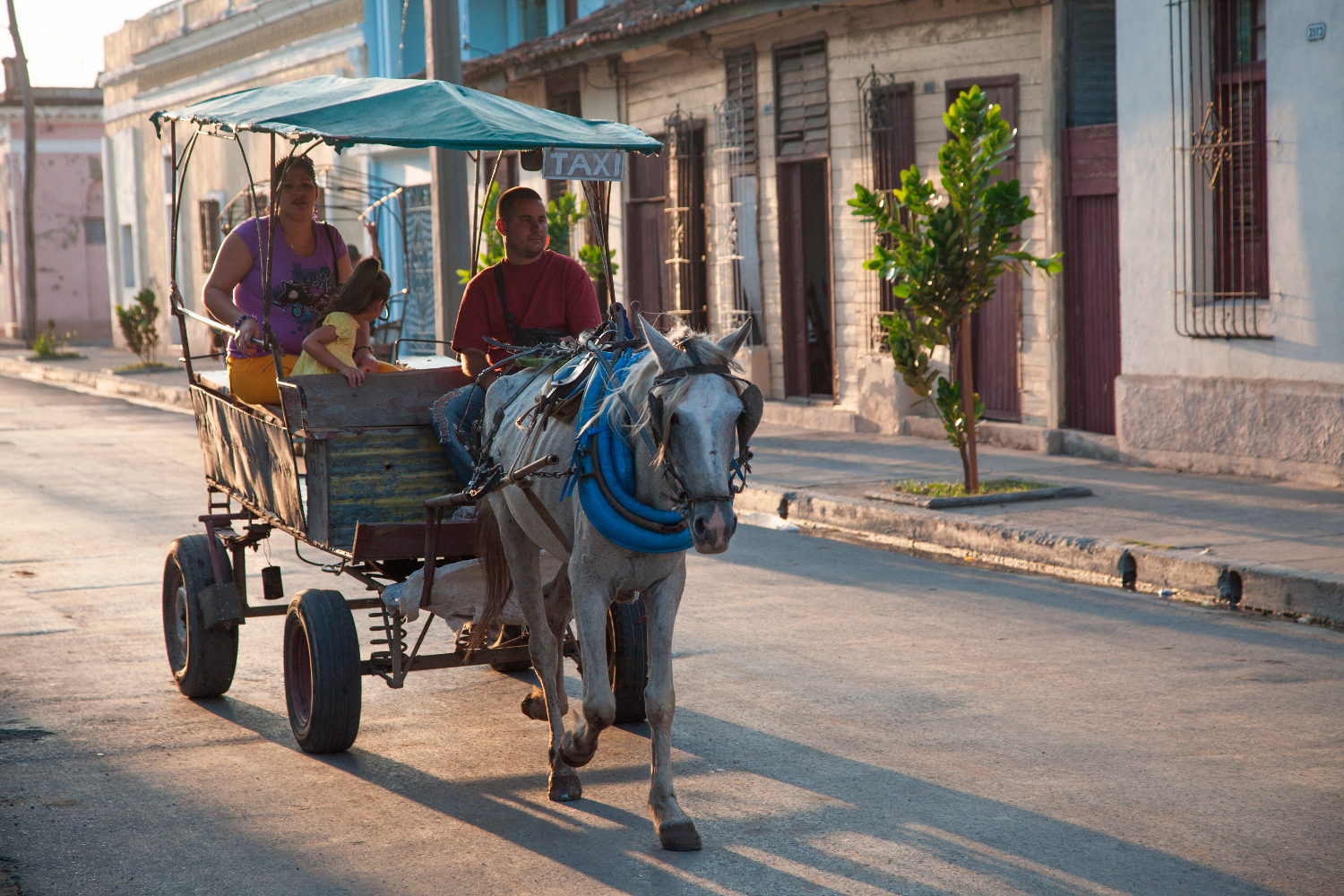
If you’re traveling with babies and young children, the best rule of thumb is to bring all the paraphernalia that you’ll need; local supplies are generally scant and can’t be relied on, especially in smaller towns. Essentials will include nappies, formula milk, baby food, wet wipes, and pediatric medicines.
For older kids, it is a good idea to bring some multi-vitamin tablets and granola bars as snacks and supplements. Download any games, books or entertainments you require onto a tablet (internet is patchy in Cuba), and bring a sketch-pad, crayons and small toys for long waits in restaurants (though musical entertainment is guaranteed wherever you go).
Traveling to Cuba with a baby is, in some senses, easier than traveling there with older children who may sometimes be flummoxed by the country's lack of home comforts. For infants under one year, you can avoid bringing a bulky pram or pushchair (not always ideal on Cuba’s uneven pavements) and get away with using a lighter, more adaptable baby-carrier.
There are no cultural issues surrounding breast-feeding in Cuba, though good etiquette would be that you cover up discreetly with a shawl or blanket. For formula milk, it’s best to bring your own and mix it with bottled water. Regular milk in Cuba is pasteurized and safe to drink, but might not taste the same as it does back home. Dairy top-ups can be procured with ice cream which is sold in cartons in most general stores. Stock up on supplies for long car journeys as rural shops often run out, especially in the Oriente (eastern Cuba).
Outside of the large all-inclusive resorts, it’s unlikely you’ll be offered a travel cot in Cuba. Bring your own if it is an essential item, or consider bed-sharing.